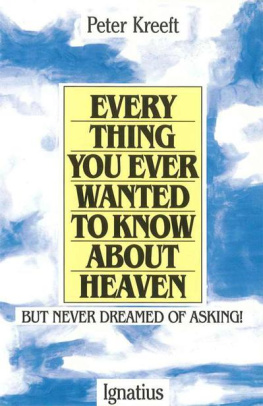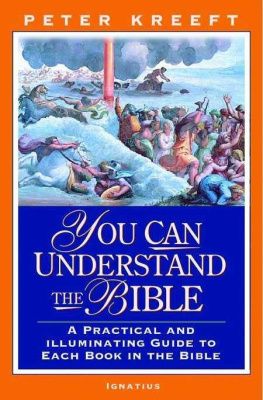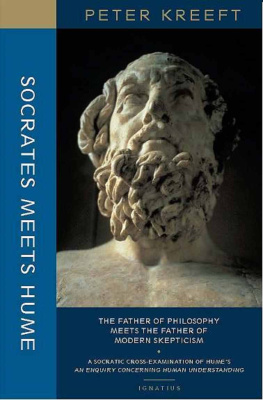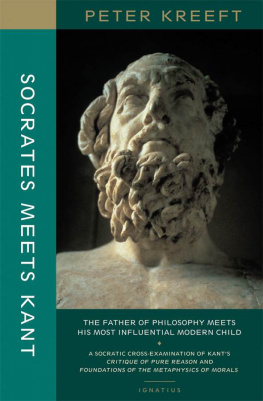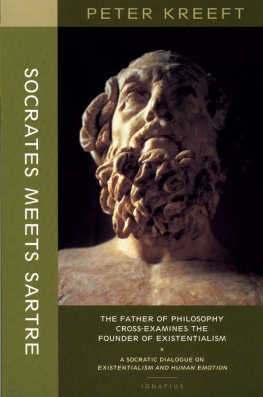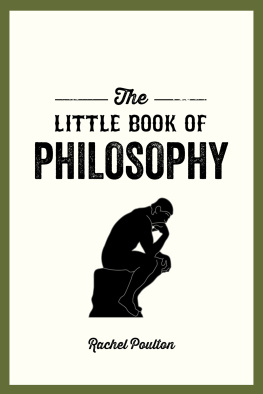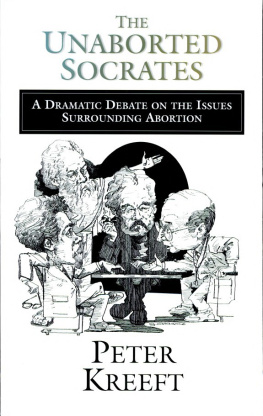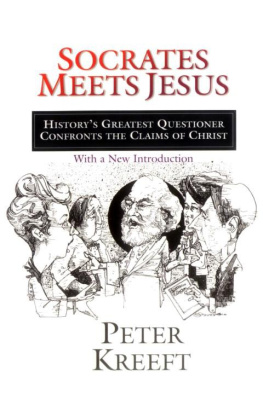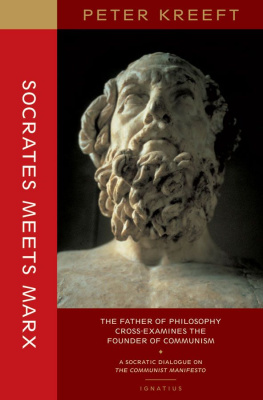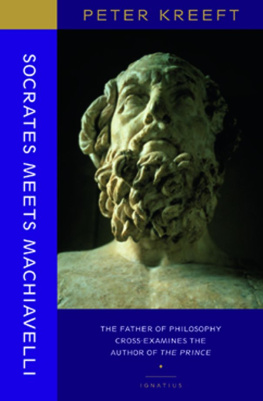Socrates Meets Descartes
Socrates Meets Descartes
The Father of Philosophy Analyzes
The Father of Modern Philosophys
Discourse on Method
by Peter Kreeft
IGNATIUS PRESS SAN FRANCISCO
Excerpts have been used from the following books:
Discourse on Method (DM), Indianapolis: Hackett Pub., 1998.
Meditations (M), Indianapolis: Hackett Pub., 1998.
Penses , translated by A. J. Krailsheimer (Harmondsworth: Penguin, 1970).
Cover art: Stone Head of Socrates (469-399 B.C.)
(classic sculpture)
The Louvre, Paris, France / Bridgeman Art Library
Cover design by Roxanne Mei Lum
2007 Ignatius Press, San Francisco
All rights reserved
ISBN 978-1-58617-188-9
Library of Congress Control Number 2006939364
Printed in the United States of America
For Joseph Flanagan, S.J .
Contents
Preface
This book is one in a series of Socratic explorations of some of the Great Books. Books in this series are intended to be short, clear, and non-technical, thus fully understandable by beginners. They also introduce (or review) the basic questions in the fundamental divisions of philosophy (see the chapter titles): metaphysics, epistemology, anthropology, ethics, logic, and method. They are designed both for classroom use and for educational do-it-yourselfers. The Socrates Meets... books can be read and understood completely on their own, but each is best appreciated after reading the little classic it engages in dialogue.
The settingSocrates and the author of the Great Book meeting in the afterlifeneed not deter readers who do not believe there is an afterlife. For although the two characters and their philosophies are historically real, their conversation, of course, is not and requires a willing suspension of disbelief. There is no reason the skeptic cannot extend this literary belief also to the setting.
Introduction
Socrates and Descartes are probably the two most important philosophers who ever lived, because they are the two who made the most difference to all philosophy after them. Socrates is often called the Father of Philosophy and Descartes is called the Father of Modern Philosophy. The two of them stand at the beginning of the two basic philosophical options: the classical and the modern.
At least seven features unite these two philosophers and distinguish them from all others.
First, each was an initiator, a revolutionary, virtually without predecessors. No other philosophers depended so little on previous philosophers, and no other philosophers made subsequent thinkers depend so much on them. Socrates method, Socrates questions, and Socrates answers differed almost totally from the so-called pre-Socratic philosophers; and Descartes tried to begin philosophy all over again as if the two thousand years of it before him simply had not existed. No one else in the history of thought has ever done this as thoroughly as these two did.
Second, each began by doubting and questioning everything, or nearly everything, even the commonplaces everyone else took for granted. Both understood that the first and most important step of a truly scientific method is to assume nothing, or at least to question all assumptions, to get prejudices out, out from the subjective side of consciousness and into the objective side, where they can be part of the examinees rather than part of the examiners.
Many other philosophers agree with this, of course, but none ever did it more thoroughly or originally than these two. Socrates had few books, no schools, and little philosophical tradition before him to work with; Descartes had much, but deliberately doubted it all (or tried to). Thus both relied on the direct experience and thinking of the individual, not the authority and tradition of the community.
Third, each made the quest for the knowledge of the self the central philosophical quest, though they meant somewhat different things by it. What Socrates meant by know thyself was know Mans essence, know universal human nature. What Descartes meant was know your own existence as an individual.
They also undertook this quest for different reasons. Socrates reason was obedience to the command of the god of the Delphic oracle, over whose temple know thyself was inscribed. Descartes reason was to overcome the skepticism of many of the best thinkers of his time (especially Montaigne) by discovering the one absolute certainty that could be used as the starting point of a new, more certain philosophy: I think, therefore I am. But both men turned to the I, the self, the soul, the mind, as their fundamental interest, much more than any other philosophers had. (Descartes only rivals here are Augustine, twelve centuries before him, and Pascal, his contemporary; Socrates had no other preceding or contemporary rivals at all.)
Fourth, each identified the self with the soul rather than the body. Each was a dualist; that is, they believed that reality is dual (twofold): matter (including our bodies) and spirit (including our souls). No philosophers were more famous dualists than Descartes and Socrates (via his disciple Plato).
Fifth, each focused on the epistemological question, or the critical problem of How do you know? Socrates asked this question about every particular claim anyone made to know anything, while Descartes asked it about knowledge in general. Unlike Socrates, Descartes demanded a reason for trusting reason itself before using reason to construct a philosophy, as a carpenter might check his tools before building a house. Perhaps this is an answerable question, perhaps not. But in any case, no two philosophers ever focused more attention on the question How do you know? than these two.
Sixth, each offered a new method to philosophy, though both came to traditional conclusions through their new methods. In both cases, the new method demanded more severe criteria, tighter, stricter grounds for our beliefs and opinions. Each philosopher narrowed reason. Before Socrates, it had included myth, intuition, and tradition. Without rejecting any of these older things, Socrates demanded something new: clear definitions and logical arguments. Descartes narrowed reason further, from wisdom to science, from philosophical logic to scientific logic, from Socrates dialectical (dialogue) method to the scientific method. No other philosophers ever offered new methods that changed philosophical thinking itself as much as these two. And no philosophers method ever proved more popular, more universally imitated by his successors, than these two.
Seventh, each believed he was divinely commissioned to philosophize by a supernatural sign. For Socrates, it was the Delphic oracle, who, by announcing to Socrates friend Chairophon that no one was wiser than Socrates, inveigled Socrates to question others to find someone wiser than himself, and in so doing inveigled Socrates to develop the Socratic Method of philosophizing by logical cross-examination.
Socrates also confessed that he had a private spiritual sign or divine voice, which often stopped him from some course of action but never specifically commanded any. Like most idealistic Athenian citizens of his time, Socrates had aspired to a political career, but the divine voice forbade him. So together, the Delphic oracle and the divine voice led him into philosophy. In his Apology , he defends not only himself but his troublemaking vocation of philosophizing; and every single time he mentions philosophy in that speech, he mentions the god as the source of his vocation to philosophize.
Descartes, too, became a philosopher due to an apparent divine intervention. Already at age twenty-three he was clearly a scientific genius, and he delayed publishing only because of the condemnation of Galileo. On the night of November 10, 1619, he had a life-changing dream in which he believed that the divine Spirit of Truth came to him and directed him to philosophize.
Next page

